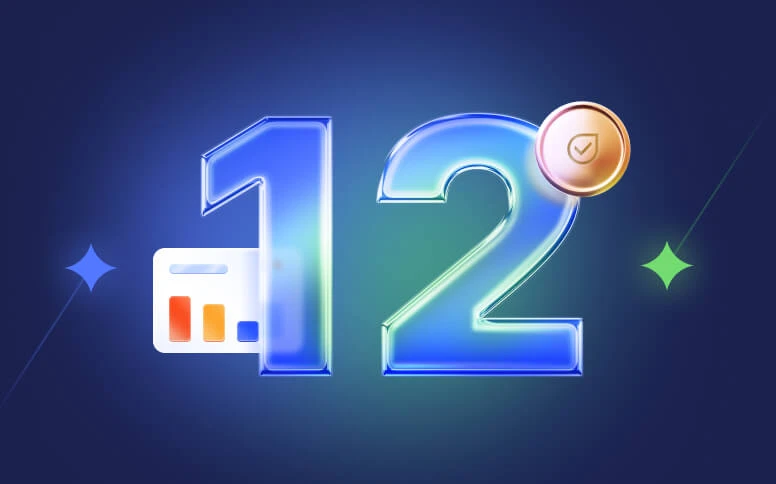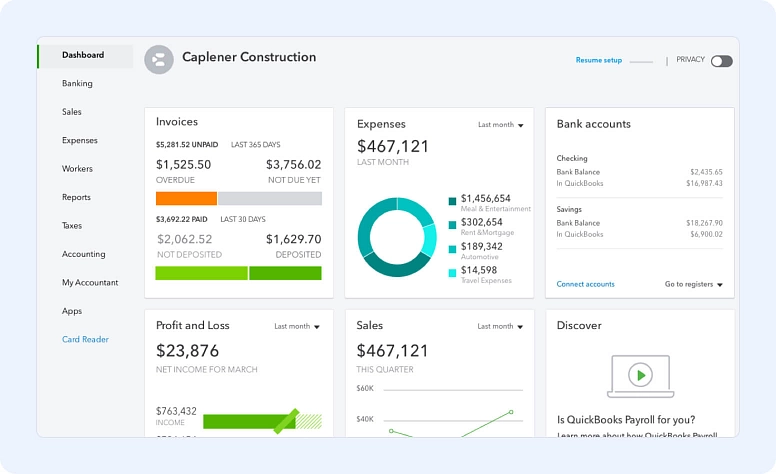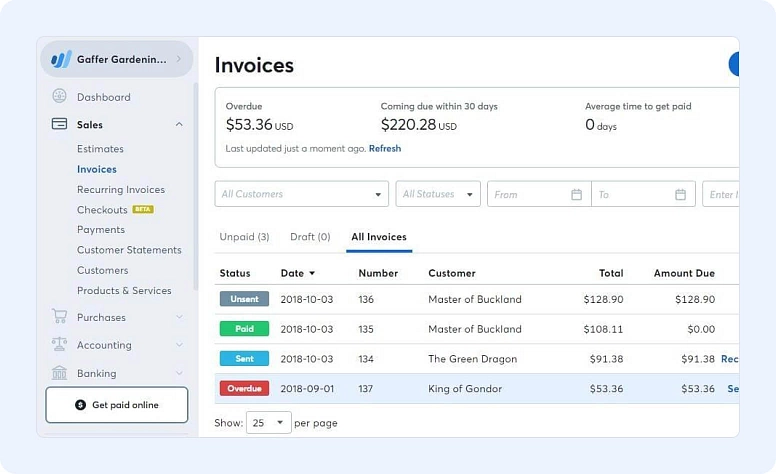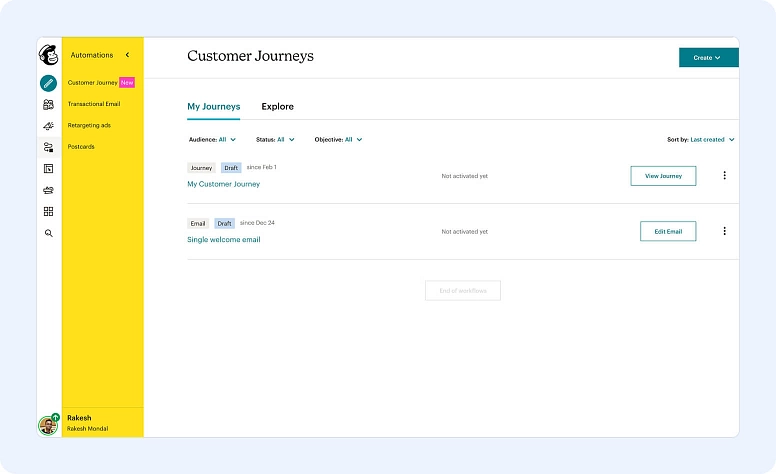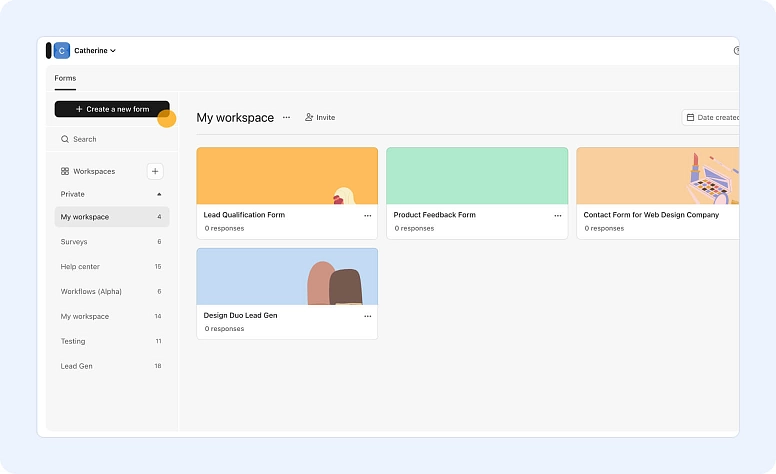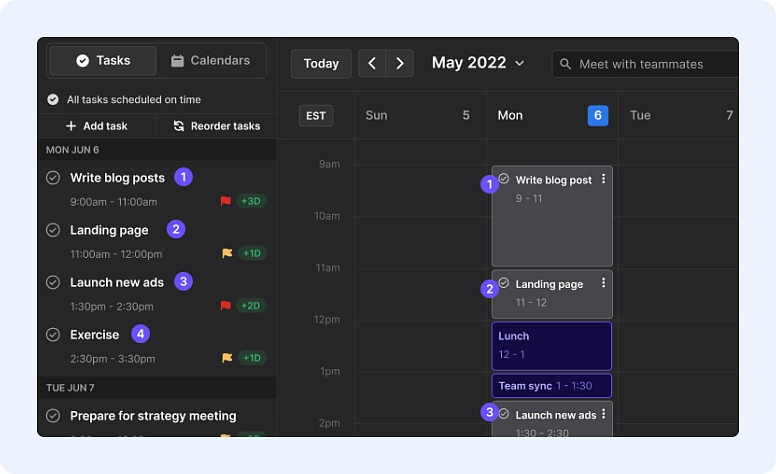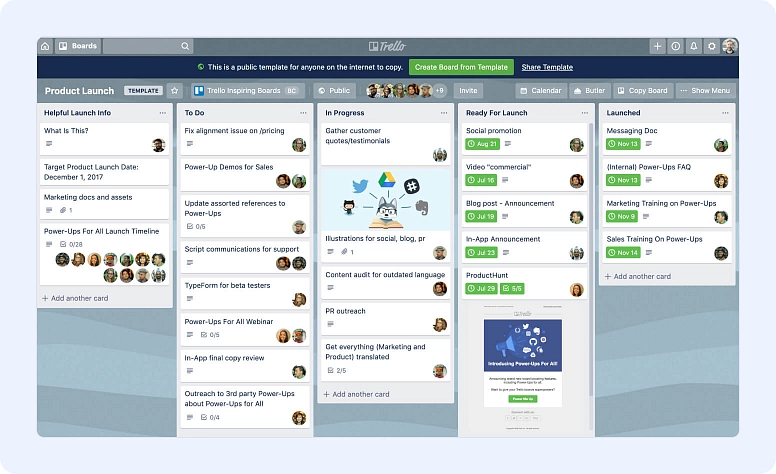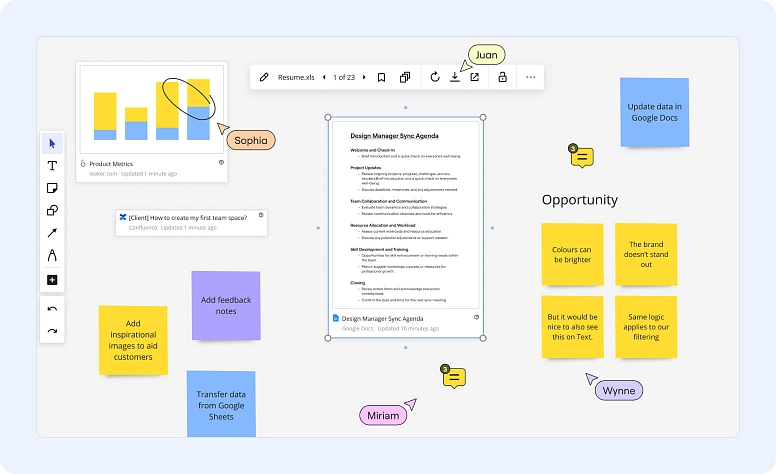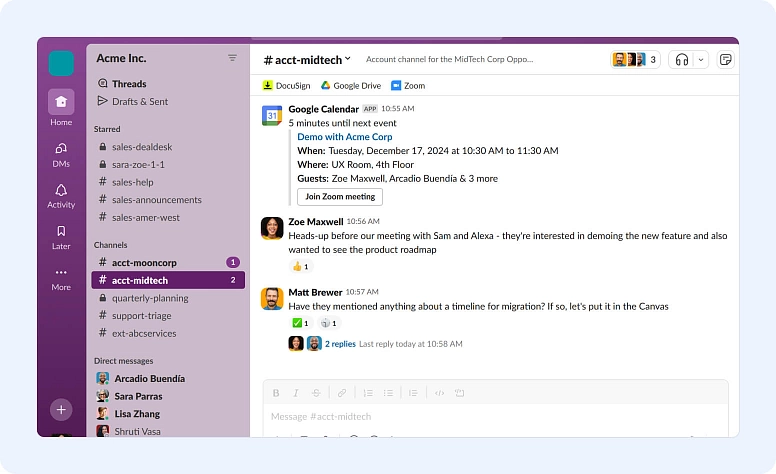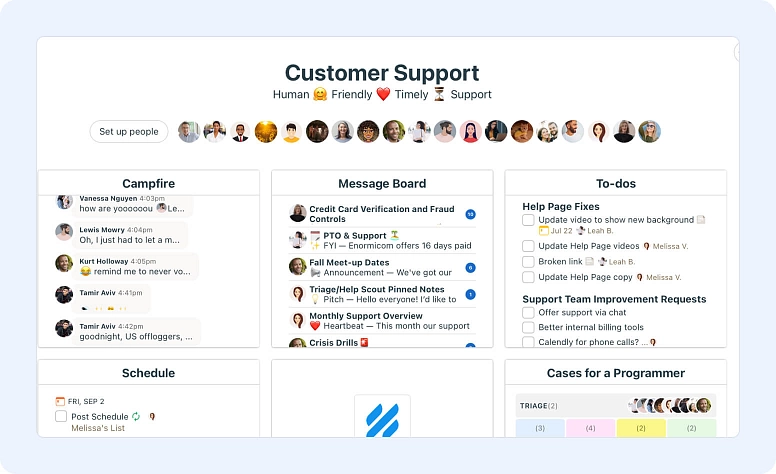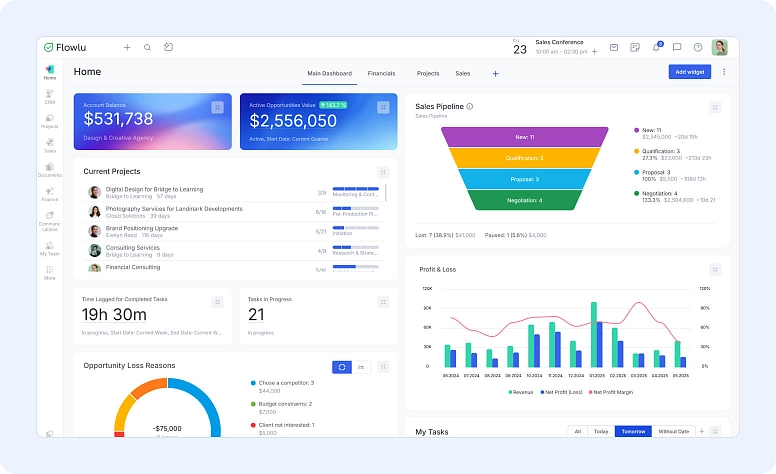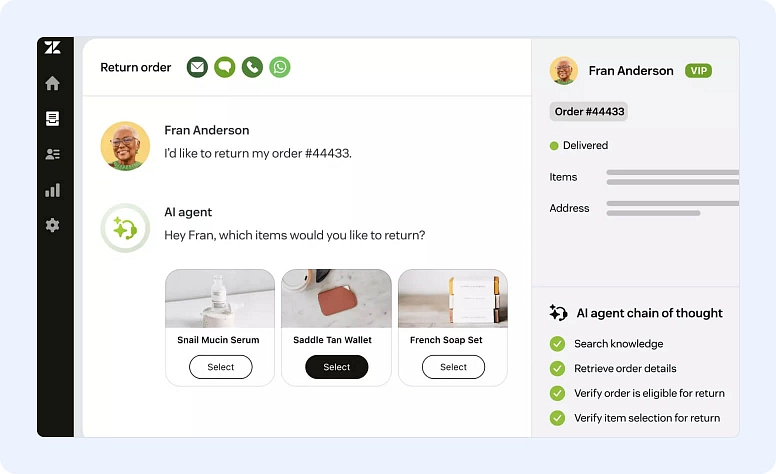12 Best Tools for Small Business Owners in 2026
As a small business owner, you’re constantly juggling priorities. Some days, it feels like there’s barely enough time to pause, let alone make thoughtful decisions. Between running your team, keeping projects on track, scheduling meetings, staying on top of marketing, making sure your website runs smoothly, and building strong customer relationships—it’s a lot for one person to handle.
You don’t have to carry it all alone. Modern business management tools are built to take on the repetitive, time-consuming parts of the job so you can focus on what matters most. But which apps are worth your attention, and how can they actually make a difference?
What Counts as Small Business Software?
The term or expression small business software tools is very generic since it includes a wide range of platforms to help you increase efficiency, manage your business processes, and, ultimately, grow your business.
These kinds of tools can include communication software, a bookkeeping system, a tool for managing tasks, or for managing marketing campaigns, among many more. So, we can say that small business owners should look for top apps for SMBs and not just a single tool.
Here are some of the most important small business apps and resources that can help you in your day-to-day operations:
- accounting & financial management tools
- marketing apps
- task management & project planning apps
- communication and team collaboration tools
- customer management (CRM) platforms
- customer support tools
Why Are Small Business Tools and Software Important?
As we already mentioned above, business software tools for SMB owners are very important since they allow you to increase productivity, streamline processes and operations, and automate repetitive tasks.
One of the best things about using online apps for small businesses is that they have evolved a lot. Today, it’s normal to have invoices created automatically or even sent automatically to your clients, for example. The same is true for email marketing or inventory management.
When you start using digital apps for SMBs, you’ll notice increases in productivity, as well as improvements in collaboration and communication between team members and different teams.
For example, a small online retail shop might use QuickBooks to track expenses, Mailchimp to run email campaigns, and Flowlu to manage customer orders and invoices—all working together to save time and reduce errors.
4 Key Benefits of Small Business Software
As a small business owner, you know better than anyone that your resources are scarce. This means you need to be extra careful managing them. Still, investing in the best apps for SMBs is a wise decision. Here are some of the main benefits:
#1: Improved Collaboration & Communication
These tools should allow collaboration and communication through multiple channels such as video conferencing, chat, email, and even calls. The platform should also allow file sharing.
#2: Save Time With Automation
There’s no reason to keep repeating the same manual tasks over and over when you can use a tool to save time and minimize errors. Automation can be applied to many different aspects of your business, increasing productivity and efficiency.
#3: Keep Your Tasks/Projects Running
As a business owner, you need to stay on top of all the tasks and projects your business has in hand. To do this, you need business technology tools that allow you to manage tasks, track the progress of tasks and projects, and determine whether your resources are being used effectively.
#4: Get Powerful Insights
When you use tech software for small businesses, it becomes easier to gain powerful insights about your processes and business overall, which allows you to make better decisions.
9 Key Features Top Business Tools Need to Include
By now, your head is probably spinning, wondering which tools to invest in. With so many different types of small business apps available, how can you pick the right ones?
Here are some of the key features essential platforms for SMBs need to include:
#1: Customization
The best online business apps should be completely customizable. We’re not only talking about dashboards but also workflow processes and reports. The apps need to adapt to your business, not the other way around.
#2: Good UI
A simple, easy-to-use interface is crucial. You don’t want to spend more time than necessary figuring out how the tool works. You want to open it and start using it.
#3: Collaboration & Communication Features
The best online apps for SMBs include multiple channels that allow team members to communicate. Video conferencing, chat, email, instant messages, and even notifications should all be part of the package.
#4: Automation
More than ever, automation is key. For small businesses where time is so important, you need to use automation as much as you can. So, make sure to pick micro business software that already includes automation.
#5: Integrations
The more, the better. The truth is that you’re probably already used to some tools, and just because you’re getting new ones doesn’t mean you need to stop using the old ones. The best web apps for small businesses allow integrations with many popular apps and programs.
#6: Customer Support
Before you pick a tool, make sure it has good customer support to help you if you need it.
#7: Analytics & Reports
For an SMB owner who needs to be on top of everything, having analytics and reporting is crucial. These not only show you how your business is performing, but also deliver powerful insights to help you make the best decisions.
#8: Scalability & Flexibility
The software you choose needs to be both flexible and scalable. This allows you to keep using it for many years to come.
#9: Security
Data is more important than ever, and it’s your responsibility as a small business owner to ensure there are no data breaches. So, it’s important to choose digital apps for business that include automated backup, secure access controls, and data encryption.
The Best Tools for Small Business Owners
As we already mentioned above, small business apps can be divided into multiple categories. To make things easier for you, we’ll show you several of the best apps for each category. Please note that some tools (like Flowlu or Basecamp) span categories, which is great if you want an all-in-one solution.
Accounting & Financial Management Tools
#1: QuickBooks
QuickBooks is cloud-based accounting software designed specifically for small and medium businesses.
With QuickBooks, you can easily manage your inventory, keep track of expenses and income, divide expenses into tax categories, and create custom financial reports. This tool also includes invoicing software.
QuickBooks starts at about $20/month for the Simple Start plan.
#2: Wave
Wave is another powerful financial software for SMBs, and the best part is that it’s free.
Wave comes with multiple features, including basic accounting, receipt scanning, and invoicing. However, if you’re willing to pay an extra fee, you can also get professional bookkeeping and payroll services.
Wave is free for core features, with optional paid add-ons.
Want to explore more? Check out our full guide to top financial management tools for SMBs.
Marketing Tools
#3: Mailchimp:
Email marketing continues to be a strong channel for many industries. If you use it, you may want to check out Mailchimp.
With Mailchimp, you’ll get hundreds of editable templates with drag-and-drop functionality, AI-generated emails, and email automation through the Customer Journey Builder tool.
When it comes to marketing—and especially email marketing—A/B testing is crucial. You’ll find this feature in Mailchimp, along with analytics and reporting.
Mailchimp pricing begins at around $13/month for the Essentials plan.
#4: Typeform:
To get the most out of your marketing campaigns, you need to know your audience well—and Typeform can help.
Typeform allows you to create forms and surveys that are turned into engaging experiences to encourage completion. This helps you deliver better experiences, services, and products to your customers.
Typeform starts at about $17/month.
For a deeper look, here’s our complete guide to marketing automation tools for entrepreneurs.
Task Management & Project Planning Tools
#5: Motion
When you’re looking for apps for business owners to help you plan and schedule your day, you should check out Motion.
With Motion, you can create tasks with a single click and then schedule them or even make them recurring. You’ll also be able to take advantage of the included project templates, and the AI Meeting Assistant will help you schedule your appointments and meetings.
Motion integrates with many other apps, making it a great solution.
Motion pricing begins at $12 per user/month.
#6: Trello
You’ve probably already heard about Trello, since it’s a very popular tool among SMB owners. In case you haven’t, Trello is a project management tool that can help you manage different projects at the same time.
Trello allows you to create tasks with custom fields, checklists, attachments, and due dates. You can also view your projects in different ways, including cards, lists, and boards.
Just like Motion, Trello also supports multiple integrations.
Trello starts at about $5 per user/month for the Standard plan.
#7: Miro
When you’re looking for more clarity to define a plan or strategy, Miro is the tool to use.
Miro allows you to easily transform abstract concepts and ideas into visuals that everyone can understand. With this app, your strategic planning will improve, and it will be easier to keep everyone on the same page.
Miro offers a free plan, with paid plans starting at $8 per user/month.
We’ve also put together a full breakdown of the best project management tools for freelancers.
Communication and Team Collaboration Tools
#8: Slack
Slack is one of the best tech tools for SMBs. The truth is that communication is key in today’s world, and emails are far from being the most effective communication channel. This is where Slack comes in.
You can see Slack as your communication hub, offering both team and individual chat, as well as private and public channels. One of its standout features—Slack Huddles—includes messaging, reactions, screen sharing, and audio and video calls, all in real time.
Slack pricing starts at about $7.25 per user/month for the Pro plan.
#9: Zoom
If you’re used to video conferencing, then you need Zoom. While you may have only discovered this powerful tool during the COVID-19 pandemic, it surged in popularity and became essential for millions of people worldwide. And while the pandemic has ended, Zoom is here to stay as one of the top small business productivity platforms.
Zoom is the perfect tool for meetings, as it can host up to 1,000 participants for as long as 30 hours. You also have the option to record meetings, use the chat, get AI-generated highlights and summaries, and benefit from in-meeting polls, co-annotation, and whiteboards.
Zoom begins at $13.33 per user/month for the Pro plan.
#10: Basecamp
Basecamp is another popular tool that can improve team communication while streamlining project management at the same time.
With Basecamp, your employees can easily share files, chat, collaborate with clients, and manage tasks—all from one place.
Basecamp starts at $15 per user/month (or a flat $299/month for unlimited users).
Want to dive deeper into building stronger teamwork? Check out our full guide: Collaboration in Teams 2025: Ways to Build Cohesion
Customer Management (CRM) Tools
#11: Flowlu
Unlike single-purpose apps, Flowlu combines project management, CRM, invoicing, and collaboration in one platform. This is perfect for entrepreneurs who prefer an all-in-one solution.
With a simple and intuitive dashboard, you can manage your entire business in one place. From projects and tasks to clients, invoices, and payments—you can streamline workflows, improve collaboration and communication, track time, generate reports, and much more.
One of the best things about Flowlu is its flexibility, customization options, and scalability.
Flowlu pricing starts at about $9/month for the Essential plan (paid annually).
Customer Support Tools
#12: Zendesk:
Zendesk is one of the most well-known names in customer support.
This all-in-one solution helps you deliver excellent customer experiences and build lasting relationships with your clients.
Zendesk provides a unified workspace where you can access all customer interactions. It has an integrated ticketing system with a voice solution. You can also add 24/7 AI agents for customer support and use the built-in knowledge base software to organize your resources.
Zendesk begins at $19 per agent/month for the Support Team plan.
Want to see how support gets even better when CRM and ticketing combine? Don’t miss our full guide: What Is a CRM Ticketing System? (And Why Your Team Will Thank You for Using One)
How to Implement All These Business Tools and Technology
The truth is that you don’t need all of these productivity tools. As mentioned earlier, you should determine your needs and budget, and then decide which apps are most important. Many of the best small business tools we mentioned above integrate with others, so it’s a matter of identifying which categories are priorities for you and then trying out the available options.
Bottom Line
There’s no question that small business owners don’t have an easy life. However, when they use the best management software tools for SMBs, things become much simpler.
Think about your needs and goals, and try one tool at a time. If you’d rather skip juggling multiple apps, Flowlu brings many of these features together in one platform. If you’re not sure where to begin, try Flowlu with a free trial.
There isn’t a specific number of tools you must use. Assess your needs and then choose the best software for your situation.
It’s easy to feel overwhelmed when trying too many tools at once. Instead, focus on the types of tools you actually need. Start with one at a time. You’ll quickly find that most are simple to use, and many allow integrations with others—making them even easier to manage.
The best apps for small business owners in 2025 include solutions for accounting, marketing, project management, communication, CRM, and customer support. Popular choices are QuickBooks and Wave for finances, MailChimp and Typeform for marketing, Trello and Motion for task planning, Slack and Zoom for communication, Flowlu for CRM, and Zendesk for customer support. The right mix depends on your business size, industry, and budget.





